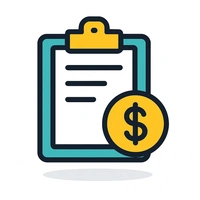
Cost of Living Overview in Seattle, Washington, United States
1. Seattle Housing Costs
Understanding the high cost of rental apartments and homes in Seattle is essential for budgeting your trip.
- Average Rent: The average monthly rent for an apartment in Seattle is around $2,000-$3,000.
- Location Factors: Prices vary significantly based on the neighborhood you choose to stay in.
- Temporary Housing: Short-term rental options like Airbnb are also pricey but offer a more local experience.
2. Groceries in Seattle
Knowing the cost of groceries can help you plan your food budget during your stay.
- Basic Items: A gallon of milk and a loaf of bread cost around $4.00-$5.00 each.
- Ethnic Markets: Seattle has numerous ethnic markets where you can find cheaper produce and ingredients.
- Dining Out: Eating out is relatively expensive, so cooking at home will save you money.
3. Transportation in Seattle
Familiarize yourself with the various transportation options and their associated costs.
- Uber/Lyft: A ride within the city averages $10-$15, but it's more expensive during peak hours.
- Seattle Transit: The bus and light rail system is affordable, with a day pass costing around $8.00.
- Bike Rental: Renting a bike for the day is around $15-$20 and offers an eco-friendly way to explore the city.
4. Dining Out in Seattle
Seattle's restaurant scene is diverse, but prices can add up quickly.
- High-end Restaurants: A meal for two at a high-end restaurant can cost $100 or more.
- Casual Eateries: Affordable options like food trucks, cafes, and quick service restaurants are available.
- Foodie Tours: Joining a foodie tour can give you a taste of Seattle's culinary scene for around $60-$80 per person.
5. Activities in Seattle
Seattle offers numerous attractions, but prices can add up.
- Museum Admission: Admission to popular museums like the Space Needle or Chihuly Garden and Glass ranges from $20-$30.
- Outdoor Activities: Free outdoor activities like hiking in Discovery Park are available, while kayaking or boat tours cost around $50-$60 per hour.
- Tourist Passes: Consider buying a tourist pass for discounted admission to multiple attractions.
6. Alcohol Costs in Seattle
Drinking alcohol in Seattle can be expensive, so budget accordingly.
- Bars and Clubs: Cocktails at bars and clubs range from $10-$15 each.
- Happy Hours: Happy hours, typically from 3pm to 7pm, offer discounted drinks but vary by establishment.
- Liquor Stores: Bottles of wine and spirits are generally more expensive in Seattle compared to other cities.
7. Gas Prices in Seattle
Gas prices in Seattle are slightly higher than the national average.
- Average Price: The average price for a gallon of gas is around $3.50-$4.00.
- Gas Station Locations: Prices can vary significantly depending on the gas station's location and competition.
- Fuel Efficiency: Choosing a fuel-efficient rental car can help offset higher gas prices.
8. Internet and Mobile Services
Staying connected during your trip is essential. Understand the cost of internet and mobile services.
- WiFi Availability: Many cafes, restaurants, and public spaces offer free Wi-Fi.
- Mobile Data Plans: Data plans for smartphones can be pricey, so consider adding an international plan to your account before traveling.
- Internet Cafes: Internet cafes are available but offer slower speeds and higher prices than other options.
9. Tipping in Seattle
Tipping is customary in Seattle, so make sure you're aware of the expected tipping amounts.
- Dining Out: A 15-20% tip is standard when dining out.
- Service Industry: Tipping taxi drivers, hairdressers, and hotel staff is also customary.
- Rounding Up: It's common to round up the total to the nearest dollar when tipping.
10. Local Taxes in Seattle
Seattle has a sales tax of 9.5% and a hotel/motel tax of 15%. Knowing these taxes can help you budget.
- Sales Tax: The sales tax is added to most goods and services.
- Hotel/Motel Tax: This tax is added to your nightly hotel bill.
- Exemptions: Items like groceries, prescription drugs, and certain services are exempt from sales tax.
11. Seattle's Rainy Climate
Be prepared for Seattle's rainy climate and the associated costs.
- Waterproof Gear: Investing in a waterproof jacket, umbrella, or boots can help you stay dry.
- Indoor Activities: Consider indoor activities on rainy days to avoid additional costs related to being wet.
- Heating Costs: Heaters and hot beverages can help keep you warm during the chilly, rainy days.
12. Seattle's Tourist Fees
Some attractions in Seattle charge additional fees for tourists.
- Attraction Entrance Fees: Entrance fees to popular tourist spots like Pike Place Market or the Space Needle can add up.
- Tourist Fees for Events: Fees may apply for attending events like concerts, festivals, and sports games.
- Photography Fees: Some attractions charge fees for professional photography sessions or taking photos using tripods.
13. Seattle's Public Transportation Passes
Know the different types of public transportation passes available in Seattle.
- One-Way Fares: Single ride fares are pricier than day or weekly passes.
- Day Passes: Day passes offer unlimited rides on the bus and light rail for a set price.
- Weekly Passes: Weekly passes offer an affordable option if you plan to use public transportation frequently during your stay.
14. Seattle's Local Festivals and Events
Knowing the cost of attending local festivals and events can help you budget.
- Festival Admission Fees: Admission fees for music, food, and cultural festivals vary depending on the event.
- Event Merchandise: Prices for festival merchandise, food, and drinks can be higher than average.
- Transportation Costs: Consider the cost of transportation to and from events when budgeting.
15. Seattle's Accommodation Options
Know your accommodation options in Seattle and their associated costs.
- Hotels: Hotels offer a comfortable stay but are generally more expensive.
- Hostels: Hostels provide affordable accommodations, although they may not be as comfortable as hotels.
- Airbnb: Airbnbs offer a more local experience but can also be expensive depending on the location.
